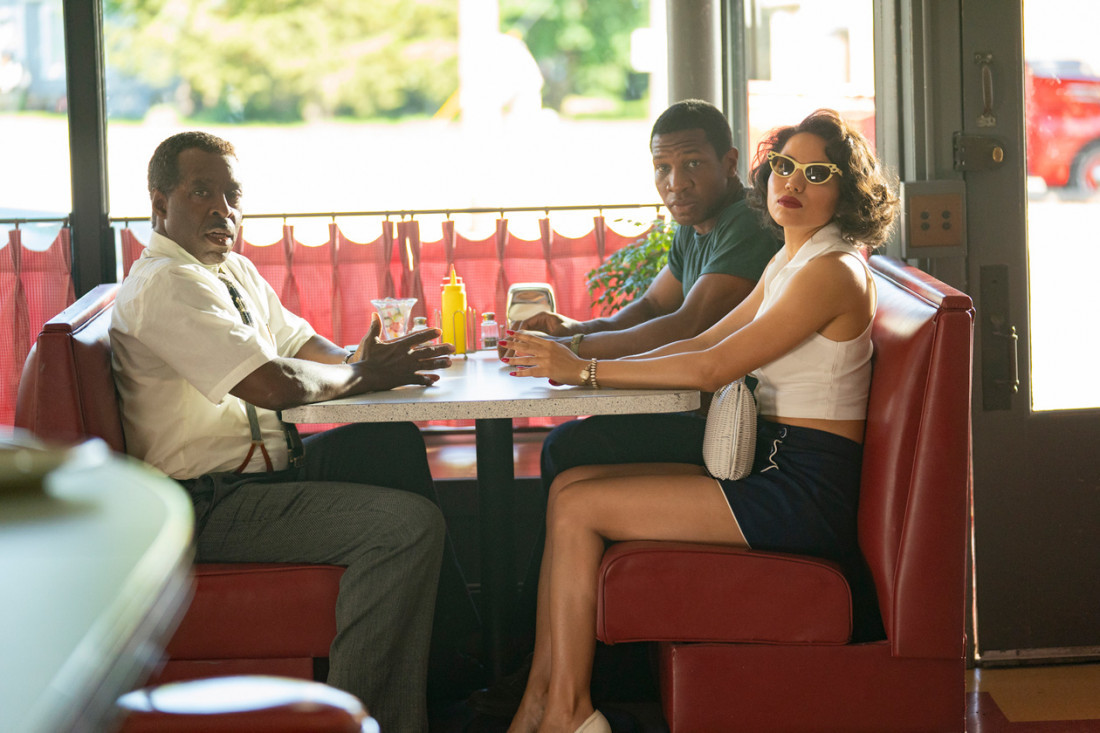Critipeg: Lovecraft Country
“Sundown”, New episodes air Sunday nights at 9PM on HBO & Crave, ★★★★☆ 1/2
Alongside the fun elements of Lovecraftian horror found in the first episode of HBO’s new show Lovecraft Country, important ideas concerning the intersection between race and literature are addressed in thoughtful ways.
While it is typical of projects linked to Jordan Peele (Get Out, Us) to include ideas about racism, it’s important to note that despite his involvement in the show’s creation, his role is relatively less significant than other titles he’s been associated with. In fact, Peele is one of the show’s several producers, while Misha Green acts as showrunner and co-writer.
Based on the novel by Matt Ruff, Lovecraft Country is a supernatural horror series that follows Atticus Freeman (Jonathan Majors) as he travels across the country with his childhood friend Letitia “Leti” Lewis (Jurnee Smollett) and his uncle George Freeman (Courtney B. Vance) to find his missing father.
Despite scenes with the Lovecraftian monsters, moments of horror are found in the overt displays of racism, where the show’s protagonists are literally hunted by white citizens and law enforcement.
While these scenes brilliantly emphasize the palpable terror African-American people grapple with in the face of law enforcement and white people in general, this is typical (if not expected) of projects that involve Peele.
What elevates the topic of race to a new level is the discourse that crops up throughout the pilot episode surrounding the whiteness of classic American literature.
This raises a dilemma specifically for the BIPOC audience: how can one grapple with loving works of literature written by the oppressors, for the oppressors?
This idea is introduced early on and throughout the first episode, as Atticus’s love of white adventure stories comes up in various conversations.
Atticus openly discusses his love for the novel A Princess of Mars by Edgar Rice Burroughs, as well as H.P. Lovecraft stories. He expresses a willingness to overlook the “flaws” for the sake of enjoying the adventure brought to life in the stories. Naturally, other characters challenge his perspective.
What’s most impressive about this is how the dilemma is explored in a nuanced, well-rounded way. The show weaves the topic into the narrative seamlessly, covering multiple perspectives without going out of its way to take a stance on the matter. It represents a truly complex issue in bite-sized, comprehensive, thought-provoking ways. Most importantly, it does not under-represent the topic.
The fact that this level of sophistication and complexity is introduced alongside classic horror elements is a credit to Green’s stellar writing, as well as the talent of the cast and crew.
Funnily, this particular topic explored throughout the pilot episode prompts a somewhat metatextual, layered line of thinking. After all, is it problematic for Black creators to develop and produce a show based on a novel by a white man, which juxtaposes the Jim Crow era with H.P. Lovecraft’s fiction? If nothing else, it’s something to consider.
Published in Volume 75, Number 01 of The Uniter (September 10, 2020)







